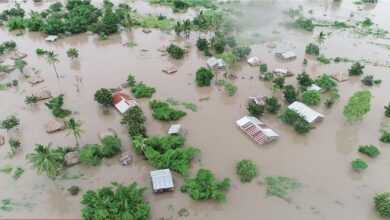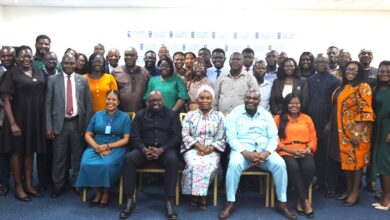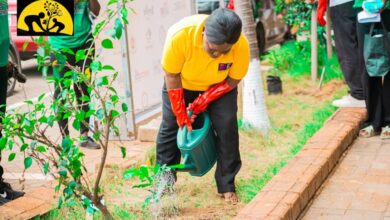Beninese entrepreneur produces eco-charcoal to fight deforestation
Ecological charcoal is emerging as an effective solution to fight against deforestation in the West African country of Benin, said Roland Adjovi, an entrepreneur in Abomey-Calavi, a city in southern Benin.
“We transform plant waste, such as cassava peelings, rice hulls, coconut shells and all kinds of leaves into an ecological charcoal, which is gaining popularity among the housewives,” said Adjovi, founder of the company Eco Sika, adding that his original aspiration is to fight against deforestation.
“Every day, dozens of trucks flush into our southern cities, including Abomey-Calavi, Godomey and Cotonou, carrying thousands of tons of charcoal, resulting from the devastation of our forests. It was then that I decided to initiate my business to produce ecological coal to protect our forests”, said Adjovi.

With the help of his employees, including some students from the National University of Agriculture of Ketou, Adjovi collects plant waste and burns them into a carbonized material which will be transformed into charcoal briquettes through an artisanal technique.
“Every day we sell more than a ton of ecological charcoal on the local market, which is very popular with housewives and even restaurateurs,” he said.
Veronique Ogbogu, a customer of the ecological charcoal, said she was satisfied with the quality of the product which she uses for cooking in her household.
“Unlike wood charcoal, the eco-charcoal is very economical and does not produce smoke that can dirty the bottom of the pots and pans we use to cook our food,” she said.

According to a recent study carried out by the Waters and Forests Department of the Beninese Ministry of Living Environment and Sustainable Development, approximately 100,000 hectares of forest are destroyed each year in Benin for various reasons, including bushfires, agriculture, and logging for timber or charcoal.
“The consequences of this deforestation include the loss of biological diversity, the degradation of bare land whose agricultural yield is becoming increasingly low,” said the same study, which points out that this low yield is the basis of the persistence of poverty, malnutrition, low access of families to education and health services.
Source: Xinhua




